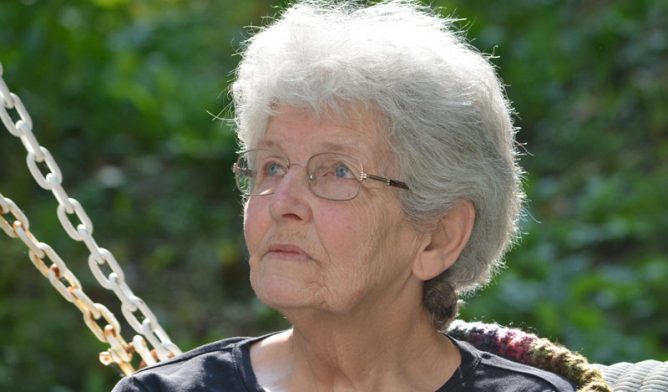Why I Decided to Stop Mesothelioma Treatment
Cancer & CaregivingWritten by Emily Ward | Edited By Walter Pacheco

One notion has remained true throughout my battle with mesothelioma: I will try just about any treatment as long as it doesn’t have a lasting, negative impact on my quality of life.
That approach lasted nearly 7 1/2 years. But in late March, my options ran out. The toll my most recent chemotherapy regimen took on my body was too much to bear.
I made the difficult decision to stop all treatment.
April 21 was my last trip to Boston and Dana-Farber Cancer Institute. It would be my last time seeing my oncologist, Dr. David Jackman, face to face.
On a phone call in early May, we evaluated my situation. I wasn’t comfortable continuing the chemotherapy drug I had been taking, gemcitabine. The side effects were just too much, and my medical team wasn’t confident it was making much of a difference in stopping the spread of cancer in my chest.
The only thing left for Dr. Jackman to offer was hospice, which I wasn’t ready for. I asked about a scheduled appointment for scans and lab work in June and was told that was no longer necessary.
Scans aren’t needed if I’m not actively undergoing treatment, I was told.
That was it — the close of a chapter — but just because treatment has ended doesn’t mean I’m giving up.
It simply means I’m moving on, while continuing to do what I’ve done since my diagnosis in 2012: Take life one day at a time.
Not Ready for Hospice
When Dr. Jackman offered me a referral to hospice services, I politely said thanks, but no thanks.
I’m not at a point where I want hospice in my home or in my life. I’m not ready to go that route yet, but I know hospice will be there when I am.
Usually when hospice is recommended, it’s because more intervention is needed. There will be a time for that, but not right now.
I would rather let the weeks pass and see if I feel better, and if not, at least enjoy my days as they are. I’m more than capable of doing all the usual things on my own.
I choose not to go out in public because of the COVID-19 pandemic, but I have no problems doing chores and other activities around the house. I have to take more breaks than I used to — and experience fatigue and shortness of breath more often — but I’m able to maintain a good quality of life by all accounts.
Nearly three months since my last treatment, not much has changed in terms of symptoms and the day-to-day.
As long as I’m able to maintain this lifestyle, hospice can wait.
When it comes to how long I have, that’s anyone’s guess. I didn’t bother asking Dr. Jackman when we last spoke. With my last CT scan in February and no plans to have another one, there’s no way he could accurately estimate it.
I think back to my third recurrence of mesothelioma in March 2019, before I started what would be a year of immunotherapy treatment. I asked what would happen if I chose no treatment, and Dr. Jackman said I’d likely have six months to a year.
So that’s the timetable I have in my head now. Maybe I’ll live as long as a year, possibly longer. Or maybe not, but there’s no sense dwelling on that.
I just plan to make the most of the time I have.
Stopping Treatment Doesn’t Mean Giving Up
I realize that there are people who will question my decision to stop mesothelioma treatment. And even if they may not say it to my face, they might view my choice as giving up on life.
The ironic thing is, it’s just the opposite.
I had to weigh my options. We exhausted all opportunities of available treatments, including four different chemotherapy drugs and immunotherapy. I’m not eligible for a second surgery or for radiation therapy due to the amount of growth on the left side of my chest wall.
With that said, I remain open to any new treatments that may come along while I’m still around. For example, Keytruda and other immunotherapy drugs were not available five years ago.
If a clinical trial that researchers have been working on becomes an accepted treatment, I’m interested to see if I qualify. That will remain the case a year from now or however long I’m on this earth.
And that’s exactly why I refused hospice. I know what its purpose is, which is end-of-life care, and I’m not willing to say that I won’t allow some other treatment if it became available and could potentially extend my life.
I just knew that I couldn’t continue the treatment path I was on. The latest chemotherapy made me so sick that I felt I could no longer take care of myself. That’s not the case since I stopped treatment.
And when that day comes, then it will be time for hospice.
In the meantime, I may move a bit slower and get winded easier than a year ago, but I’m perfectly content and happy with my homebody lifestyle. If I want to do something, I’m sure I can manage to do it.
Just because I choose to not do treatment, doesn’t mean I don’t want to live, it just means I want to live well for as long as I can.




